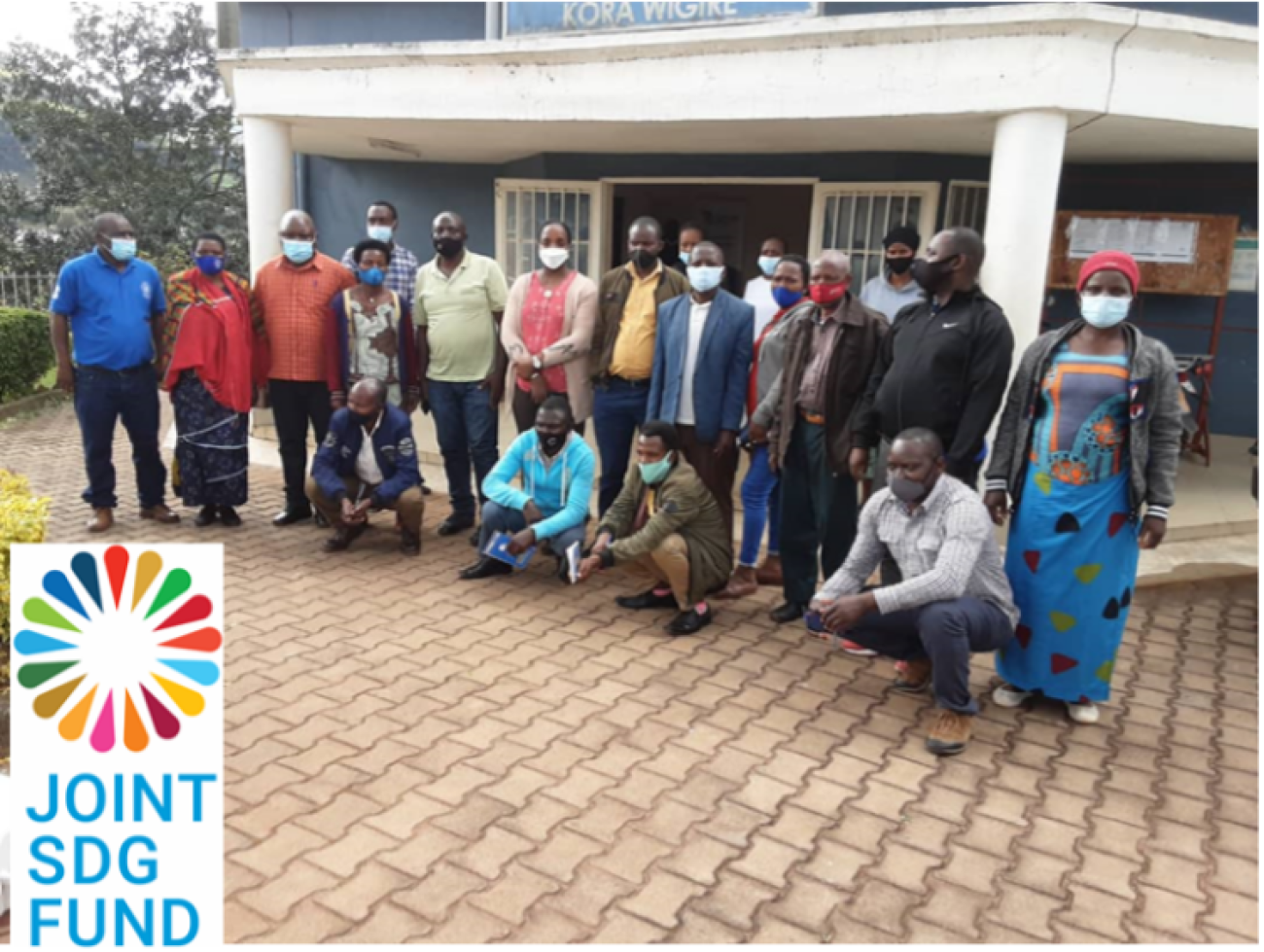The World Food Programme (WFP) in partnership with UNICEF, Food and Agriculture Organisation (FAO), and World Relief conducted community-based training through May 2021 aimed at empowering community leaders to understand the seasonality of shocks in their communities and plan for delivery of integrated services to the most vulnerable populations.
Nearly 70 local leaders at the district, sector and cell-levels were trained on WFP’s Seasonal Livelihoods Programming toolkit that looks at the historical patterns of good years and bad years and maps out how communities and local authorities generally respond to seasonal fluctuations and the many localized weather shocks faced around Rwanda.
"I’m happy this training helped me to clearly understand my role as a local government leader and understand the realities of my community regarding livelihoods and shocks. I will apply the skills to better plan for accurate response to shocks affecting my community and make clear social protection plans for a strategic response to community needs,” said Ezekiel Nsabimana, a Social-Economic Development officer from Gitega cell in Karongi district in western Rwanda.
During the training, community leaders, and local government officials from the district to the cell level were empowered to understand climate related realities and their impact on community livelihoods, for better planning and responsiveness at the community level.
The Seasonal Livelihoods Programming model is a WFP tool applied across the globe to help design shock-responsive and climate-sensitive resilience and social protection programmes. The model builds contextual understanding and capacity of community leaders to design social protection approaches and implement disaster management and shock-responsive public works activities. This is done in a way that is conducive to build community resilience and contribute to accelerating community members’ graduation from poverty. With this innovative community-based model, local communities are empowered to enhance their resilience and strengthen their ability to respond to climatic shocks.
Onesphore Habintwari, a development partner coordinator in Rutsiro district in western Rwanda, felt that the training was a wake-up call to ensure that no plan in the district goes without a risk and shock analysis.
“I learned how to prepare a community-based plan and will encourage all partners in my district to strategically plan and respond to the needs especially during shocks caused by disasters, such as landslides. From now onwards, I will always include shocks and disasters in my sector plans,” said Onesphore.
According to the National Risk Atlas in Rwanda, the country is prone to regular natural disasters causing physical, social, and economic damages and losses. The most frequent amongst these are droughts, devastating landslides, and floods. The UN Joint Programme promotes integrated social protection that meets the needs of the most vulnerable households, including those in disaster prone areas of Rwanda.


















